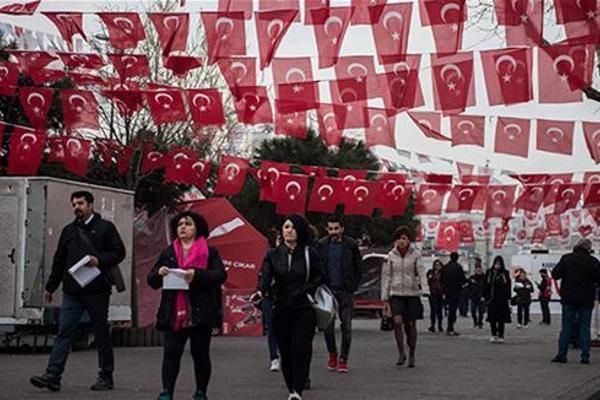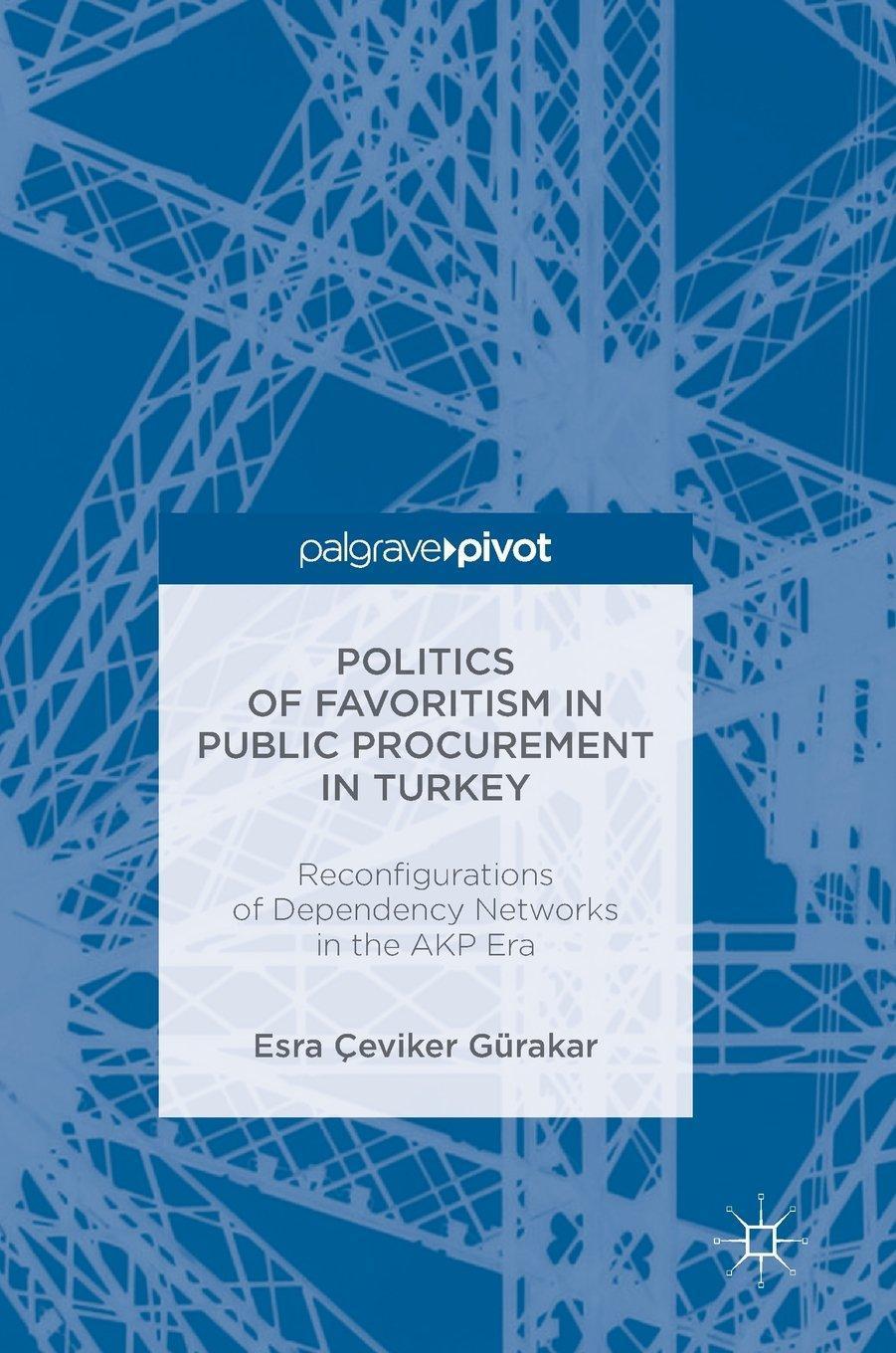Crony capitalism in Turkey
William Armstrong - william.armstrong@hdn.com.tr


People walk under Turkish flags in Istanbul. AFP photo
‘Politics of Favoritism in Public Procurement in Turkey: Reconfigurations of Dependency Networks in the AKP Era’ by Esra Çeviker Gürakar (Palgrave, 127 pages, $54)In Transparency International’s most recent annual Corruption Perceptions Index, Turkey ranked a lowly 75th. The country has been declining steadily on the index in recent years, as an earlier reform drive is abandoned and ordinary citizens increasingly come to see corruption as the normal way of doing things.


Corruption in public procurement was among the chronic problems in Turkey’s economy in the 1980s and 90s. The legal framework was ambiguous and full of loopholes, allowing ruling coalition parties to pursue rent-seeking and patronage-based relations with key constituencies by doling out goodies. When the economy went into meltdown in 2000-01, reform of the state procurement system was demanded by the IMF in return for funds that Turkey desperately needed to pay off its massive debt.
When the AKP first emerged it presented itself as a break from the corrupt old order of traditional parties (“ak” meaning “pure” or “white” in Turkish). In January 2003 it enacted a new Public Procurement Law, previously drafted in line with the wishes of the IMF and the World Bank. The EU also demanded reforms enhancing transparency and efficiency in return for the start of membership negotiations with Ankara.
But almost as soon as the new law was passed the AKP started to dilute it. It has now been amended more than 150 times, with the government increasing its discretion in awarding contracts, reducing transparency, and opening the door to corruption. All in all, the 2003 Public Procurement Law is a salutary example of “good governance” medicine being taken but simply regurgitated back up. As in other policy areas, promising early steps by the AKP proved to be red herrings.
Gürakar’s book studies the effect of the amendments in granular detail, based on a data set of 49,255 state procurements. It shows how the changes greased the wheels of AKP-linked cronyism. “The number and the value-share of public procurement contracts that fall outside transparent public procurement process (open auctions) increased substantially during the period from 2005 to 2011,” writes Gürakar. The AKP has secured its own electoral success while building its own loyal elites by establishing, preserving and developing networks of dependency. “Through social housing projects, construction of highways, and municipal services, the AKP government has both managed to touch upon the very lives of the voters and at the same time distribute rents to ‘politically connected’ private sector firms,” writes Gürakar.
Corruption leads to terrible inefficiency. Value for taxpayers’ money is not achieved because allocation of resources is politically driven. Gürakar notes that in Turkey the cost of all procurements to taxpayers would be much lower than it is currently if related policy-making was based on economic rationale. An important factor that is today little mentioned is the almost total emasculation of the Court of Accounts (Sayıştay) in recent years. The court is responsible for oversight of the use of public resources but it has become non-functional - the result of a series of legal changes limiting its scope. After 2011 it was ordered to exclude the “public loss” section from its audit reports, and in December 2013 it was ruled that state institutions would no longer be obliged to provide account details to the court. The government has thus created a vacuum where monitoring of state budgets should be.
Gürakar writes that local administrations not affiliated with the AKP are also susceptible to favoritism. She cites data showing that the metropolitan municipality in İzmir, run by the main opposition Republican People’s Party (CHP), also exercises considerable discretion in favor of affiliated firms. CHP members say in defense that they are starved of resources by the central government, but clearly when interests and pocketbooks dictate they are happy to play their part ensuring that graft in Turkey remains systematic rather than the fault of the government alone.
Perhaps the major difference between corruption today and in the past is that the AKP has been able to dominate the game nationally for 15 years, widening the scope for its own cronyism to an unprecedented degree. As a guide to a key part of that trend, “Politics of Favoritism in Public Procurement in Turkey” is a forensic and surprisingly punchy study.
* Follow the Turkey Book Talk podcast via iTunes here, Stitcher here, Podbean here, or Facebook here.
